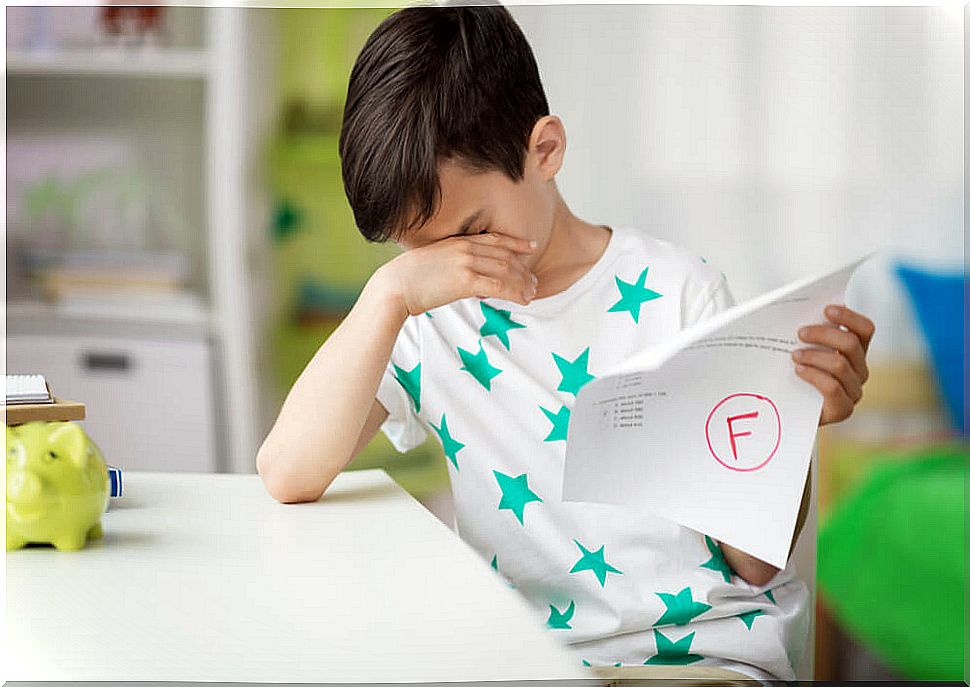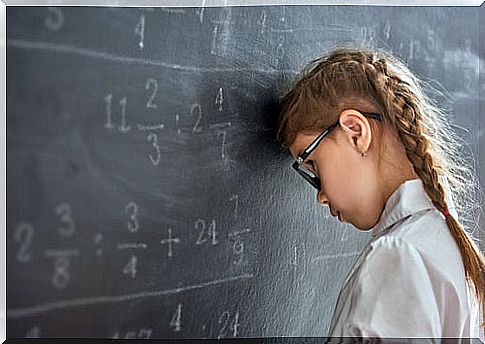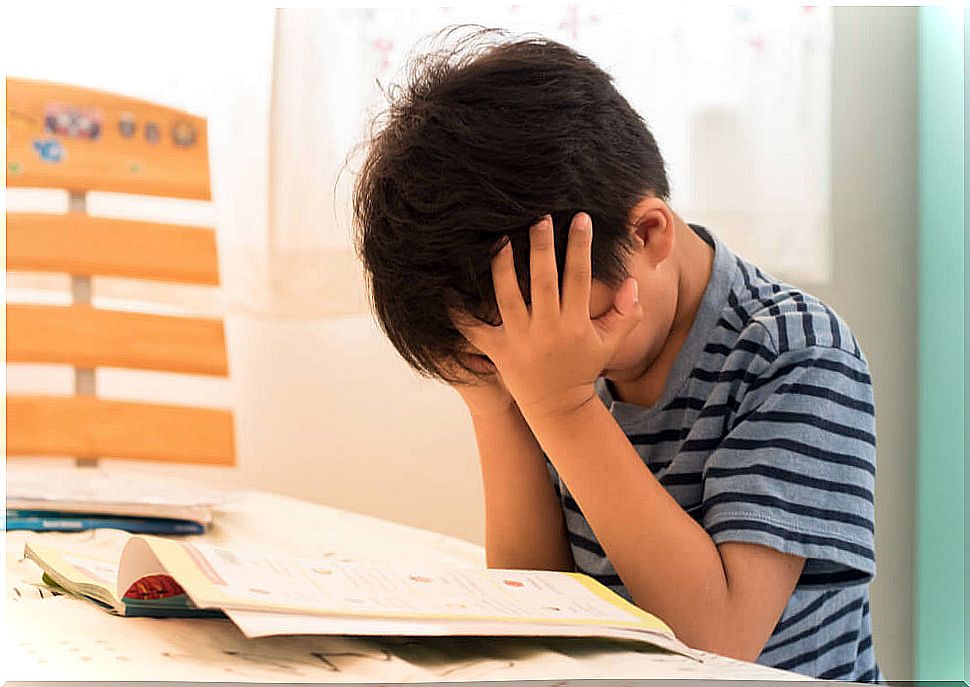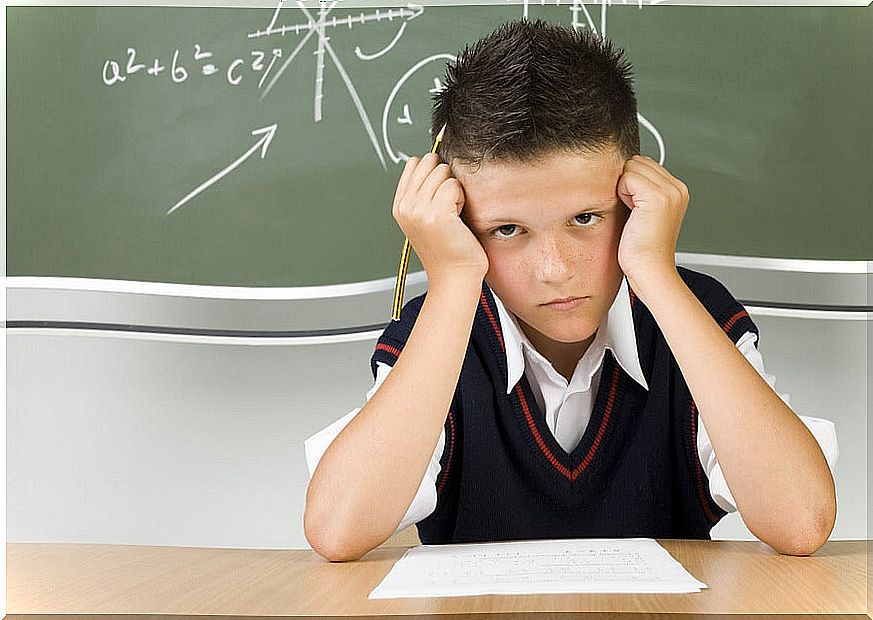Fear Of Failure In Children

Exam time can be overwhelming for your children. This is because not everyone feels capable of passing. In fact, the fear of failing in children is so strong that it can paralyze them in front of a school test. It also causes stomachaches or headaches. So, you may be wondering what you can do to help them, so in this post we give you some very practical suggestions.
How to help control the fear of suspending in children?
It is true that they can be affected both physically and emotionally. However, if you provide them with the necessary help, they will be able to finish the school year without difficulties. When your child tells you that he is afraid to fail tests, help him convince himself that he can do it. To do this, encourage him to repeat positive words frequently. An example is: “I can do it, because I’m smart.” This will help you raise your self-esteem.
Teach him relaxation techniques
The best known and that always works is to inhale deeply for a few seconds and then exhale. This technique and others can relax your children and be better prepared to present their school activity. You should teach him to do this even when you are not around, as pop quizzes can arise.
Your child may think that biting his nails or engaging in similar behaviors will help calm him down. However, the effect is the opposite, as your anxiety will increase much more.
practice test
To overcome the fear of failing in children, take a test as a test. For this, put on a sheet the possible questions that will come out in the exam. In this way, your children will know what to expect and will have more confidence in themselves. Also, if they don’t know an answer, you can help them.

Create good habits
It is important that your children are well fed and that they exercise frequently. In this way, they will have energy, they will improve their concentration and memory, with which, what they have learned will not be forgotten so easily.
Even so, not only is diet important, it is also necessary to have good study habits. Make sure your children study days before taking the exam and the day before that they do a general review. Never allow things to be learned on the same day, as this will cause them more anxiety.
Another important issue to keep in mind is to arrive at school early that day. Well, any delay that occurs along the way can cause tension.
Answer the questions you know first
Doing this will prevent your child from earning a zero for leaving the sheet blank. After you have answered all the ones you know, you may be more relaxed, so you will remember what you studied and you can answer the rest. Teach him to check his exam sheet before handing it in to correct the writing and spelling, so that unnecessary points will not be deducted.
In case of not passing, ask your child to ask his teacher what are the mistakes he has made so that he can help him solve them. Now, if your child approved, do not forget to congratulate him, so he will feel more motivated.
How do children express their anxiety?
The thought of taking a test and failing it can make your little ones overly anxious. This problem can be so severe that they stop taking the exam and give up their studies for fear of failing.

Although it is hard to believe, those who suffer the most from this fear of failure are gifted children. It is not that they do not have the ability to pass, it is that the fear of failing in children is so strong that they limit themselves . The ways they have to express it are the following:
- On a physiological level. They may have sweating, insomnia, digestive problems, vomiting, palpitations, and headaches. Also, feeling short of breath, shortness of breath, and a racing pulse.
- At the behavioral level. Even their behavior can be affected, as they are easily irritated and angry for any reason. Also, they present clumsiness of movements, tics, tremors or, on the contrary, total immobility.
- At the cognitive level. Insecurity, thought scattering, loss of concentration, memory blockage, and doubts.
In short, the fear of failing in children is strong, but it is not impossible to overcome. They just need a little help to raise their self-esteem and feel capable of passing school exams.










